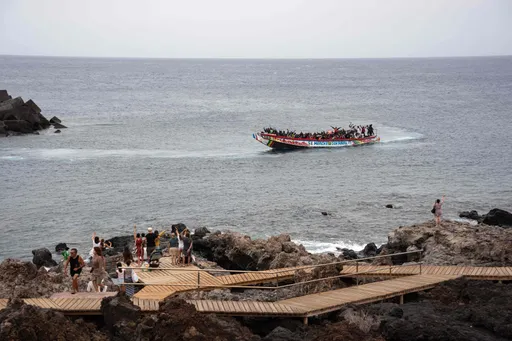The death toll from malaria and other diseases tearing through Pakistan's flood-ravaged regions have reached 324, authorities have said.
The Sindh provincial government said on Wednesday that makeshift health facilities and mobile camps in flooded areas had treated more than 78,000 patients in the last 24 hours, and more than 2 million since July 1. Six of them died.
It confirmed 665 new malaria cases among internally displaced families over the same period, with another 9,201 suspected cases. It said a quarter of the more than 19,000 patients screened in the last 24 hours across the province were positive, a total of 4,876.
United Nations Pakistan said malaria, typhoid and diarrhoea cases were spreading quickly, adding 44,000 cases of malaria were reported this week in the southern province.
Director General Health Services for southwestern Balochistan province, Noor Ahmed Qazi, said malaria was spreading quickly in regions around stagnant waters.
Deaths from disease are not counted among the 1,569 people who were killed in flash floods, including 555 children and 320 women, the country's disaster management agency said.
READ MORE: Pakistan will 'absolutely not' default on debts despite floods
'Immediate help needed'
Authorities and aid workers have said more immediate help is needed for displaced families exposed to swarms of mosquitoes and other hazards, such as snake and dog bites.
Despite the efforts of the government and local and foreign relief organisations, many people are in dire need of food, shelter, medical assistance and medicines.
With Pakistan's already weak health system and lack of support, displaced families have complained of being forced to drink and cook with unsafe water.
A historic and intense monsoon dumped about three times as much rain as Pakistan's three-decade average. Combined with glacial melt, this caused unprecedented flooding.
The deluge, which scientists say was exacerbated by climate crisis, has affected nearly 33 million people in the South Asian nation of 220 million. It has swept away homes, crops, bridges, roads and livestock in damages estimated at $30 billion.
"The aid is slow to arrive," said Dr. Farah Naureen, Mercy Corps' country director for Pakistan, after visiting several submerged regions.
"We need to work in a coordinated manner to respond to their immediate needs," she said in a statement late on Monday, prioritising clean drinking water. Health and nutrition stand out as the most important needs of the displaced population, she said.
Pakistan's finance ministry said it had approved 10 billion rupees ($42 million) for the disaster management agency to use for procuring flood relief supplies and other logistics.
READ MORE: Water ebbing in Pakistan's flood-hit Sindh province























